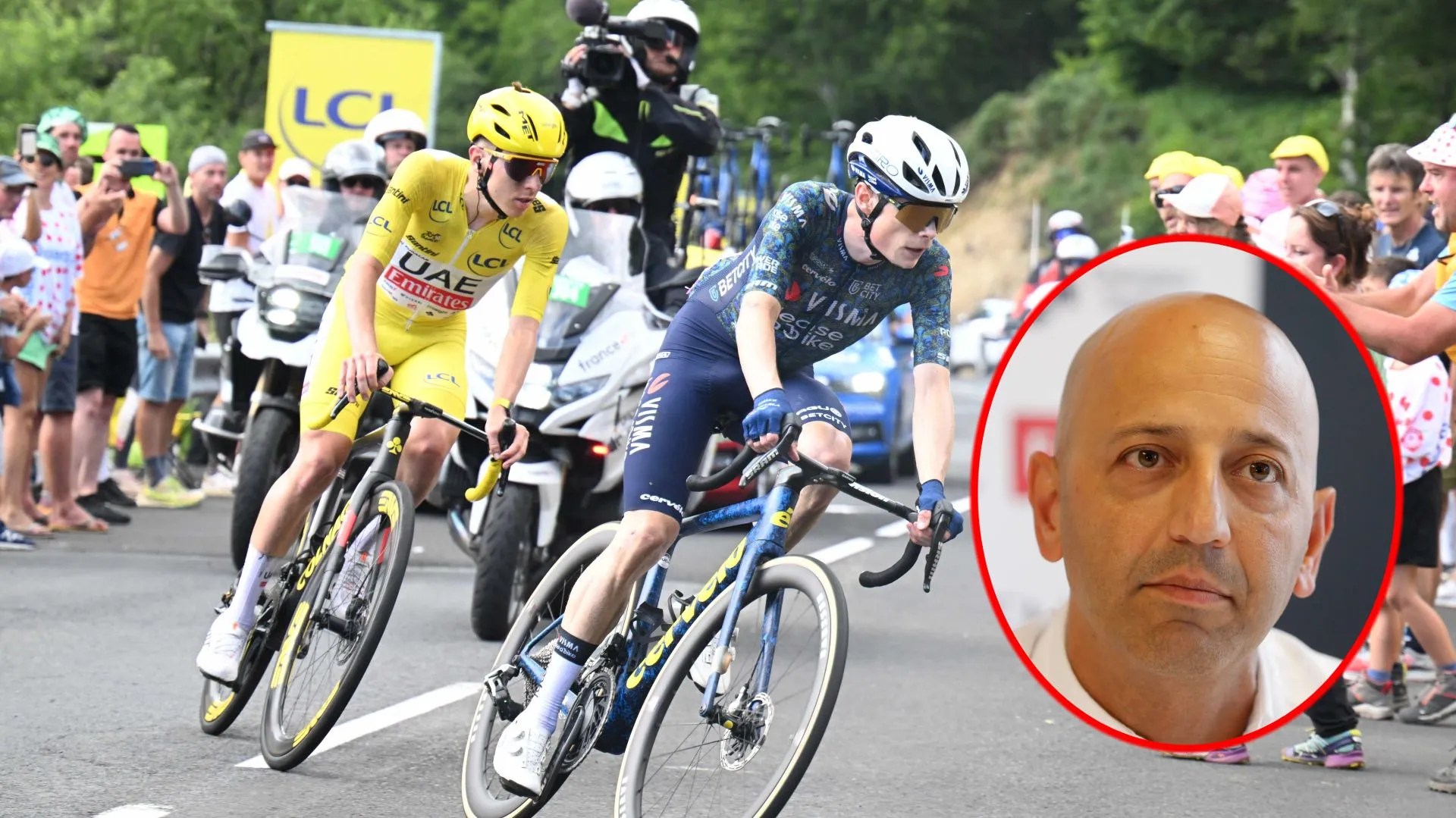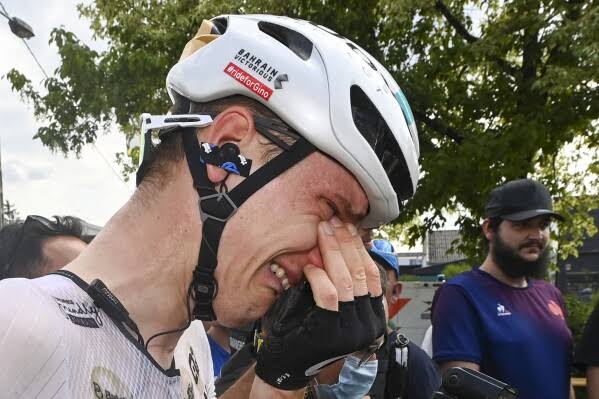In the next part of our interview, we’ll explore Matxín’s approach as a coach and his insights into the changing strategies in today’s cycling. Stay with us!

In the world of professional cycling, few names command as much respect and
recognition as Joxean Matxín. With years of experience guiding top riders to
victory in some of the sport’s most prestigious races, Matxín has seen firsthand
what it takes to win the biggest titles. In an exclusive interview, he delves into
the nuances of cycling strategy, the upcoming season’s major battles, and the
dynamic between two of the sport’s greatest stars: Tadej Pogacar and Jonas
Vingegaard. Here’s part one of our conversation with the celebrated coach.
Winning Milano-Sanremo with Pogacar: Strategy, Strength, and Mentality.
As we sit down with Joxean Matxín, the topic quickly turns to one of the most
coveted titles in cycling — the Milan-San Remo. While the race is known for its
iconic climbs and fast sprints, winning it requires more than just raw power or
speed. It’s about timing, tactics, and the perfect combination of rider ability
and team support. Matxín is no stranger to this challenge, having worked
closely with Tadej Pogacar, a rider with all the talent needed to win on the
Italian roads.
“When we talk about Milano-Sanremo, it’s a race that tests every aspect of a
cyclist’s profile,” Matxín explains. “It’s not just about being the strongest or the
fastest, but being able to position yourself at the right moment, in the right
place. Pogacar has all the qualities needed to win this race—climbing ability,
sprinting strength, and a fearless mentality.”
For Matxín, the secret to Milano-Sanremo is balancing patience with
aggression. “The race is long, and it demands strategic thinking. You have to
know when to save energy and when to go for it. With a rider like Pogacar, the
aim is to keep him in the perfect spot until the final climb, and then unleash
his explosive power. But we also need to be aware of the competition, as other
riders like Mathieu van der Poel or Wout van Aert can surprise at any
moment.”
Despite Pogacar’s dominant performances in the Grand Tours, Matxín
highlights that Milano-Sanremo presents a different type of challenge—one
that tests endurance and mental resilience. “It’s a race that demands
everything from a rider, not just physically but mentally. Tadej has this focus
that keeps him in the game, no matter the situation. But a lot can go wrong in
Milano-Sanremo, and that’s what makes it so exciting.”
Vingegaard’s Motivation: The Burning Desire to Reclaim the Tour de France.
Shifting gears, Matxín reveals his thoughts on Jonas Vingegaard, Pogacar’s
main rival at the Tour de France. While Pogacar has dominated in recent
years, Vingegaard’s performance has been a major talking point, especially
after his triumph in the 2022 Tour de France. According to Matxín, the
upcoming Tour will be a fierce contest, with Vingegaard’s motivation reaching
new heights.
“Vingegaard is going to have that need, that anger, that extra motivation,”
Matxín says. “When you win your first Grand Tour, there’s always a feeling of
achievement, but after that, the pressure is different. It’s about maintaining
that level, proving to yourself that the first win wasn’t a fluke. Vingegaard is a
very strong rider, and I expect him to come to the Tour with even more desire,
to show that he can do it again.”
Matxín acknowledges the fierce rivalry between the two riders, noting that the
psychological aspect of their battles will play a huge role in the coming
seasons. “Both Pogacar and Vingegaard have different mentalities, but each
one brings a level of hunger and focus that makes them unstoppable. The 2024
Tour de France will likely be decided not just by physical strength but by who
can handle the pressure better, who can manage their energy throughout the
three weeks.”
However, Matxín isn’t quick to write off Pogacar’s chances. “Tadej has the
ability to adapt to any situation. He has that gift to change tactics during a
race, something that makes him so difficult to beat. He knows how to win
Grand Tours, and his experience will be a key asset in the 2024 season.”
As for the team dynamics, Matxín stresses that both riders will need to rely
heavily on their support teams, as the Tour de France is not won by the star
rider alone. “Team support is crucial, especially in the mountains. The tactics
will evolve as the race progresses, and both Pogacar and Vingegaard will need
to lean on their teammates to either help control the race or to protect them
when it matters most.”
Looking Ahead: What’s Next for Pogacar and Vingegaard?
As the conversation winds down, Matxín reflects on the future of both riders.
While Pogacar’s dominance is clear, Vingegaard’s hunger is undeniable. The
stage is set for an exhilarating showdown in 2024, with both riders poised to
give their all.
“In cycling, things can change in an instant,” says Matxín. “What’s certain is
that both of these riders will push each other to their limits, and that’s what
will make next year’s Tour de France one of the most exciting yet.”
In part two of this interview, we’ll dive deeper into Matxín’s role as a coach
and his thoughts on the evolving tactics in modern cycling. Stay tuned!



